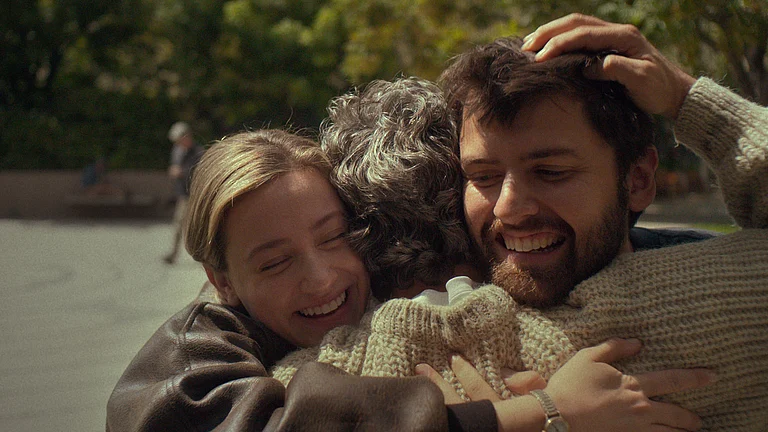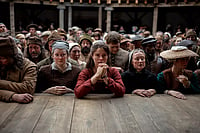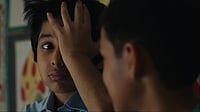
Zach Cregger's sophomore excellently creates unease and punctures it
Weapons revives horror with tonal unpredictability
The hidden surprise comes from Amy Madigan, juggling camp and menace
A great genre film is a rarity. Most of the time, it’s bogged down by fatigue, spreading from narrative to stylistic tropes. The vision is too jaded, buried in imitation of familiar visual impulses. Strains of repetition tend to drown out particulars of the maker’s own voice. For people trying their hand at it, it’s like their efforts are sucked dry by influences that are too deeply absorbed. However, once in a while, there comes a film that blows away the torpor, injecting verve and mischief into the form and telling. Zach Cregger’s Weapons arrives as a disruptive flare, uniquely darting between high atmospherics and outrageous, amusing ridiculousness. The film is not an entirely successful affair, but it keeps you on tenterhooks throughout. Amidst tonnes of genre fare blunted by hyper-artificial, dulled energy, Weapons attacks with pincers. Cregger reminds horror can be everything: unhinged, deliciously campy, hysterical, erratic—all at once.
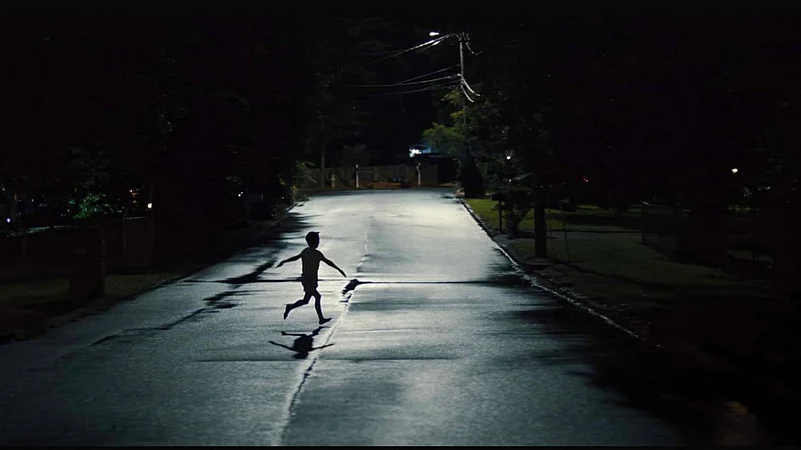
In the opening, a child’s voiceover nonchalantly relates about 17 school kids mysteriously vanishing at 2.17 am. Few door-cams reveal them just scarpering out of houses and disappearing into the night. Their identical gestures accentuate the uncanny. Suspicion and scrutiny fall squarely on the class teacher Justine (Julia Garner). One kid from the third grade, however, remains: Alex (Cary Christopher), the quiet child who turns even more distant. Why is it that all the disappearances happened from her class alone? Fingers are pointed. As much as she insists on being allowed to speak to Alex, she’s forbidden. Principal Marcus (Benedict Wong) warns her of the heated sentiments in the suburb, Maybrook. Somebody vandalises her car, calling her a witch. Other times, she feels she’s being spied and is assailed with anonymous calls.
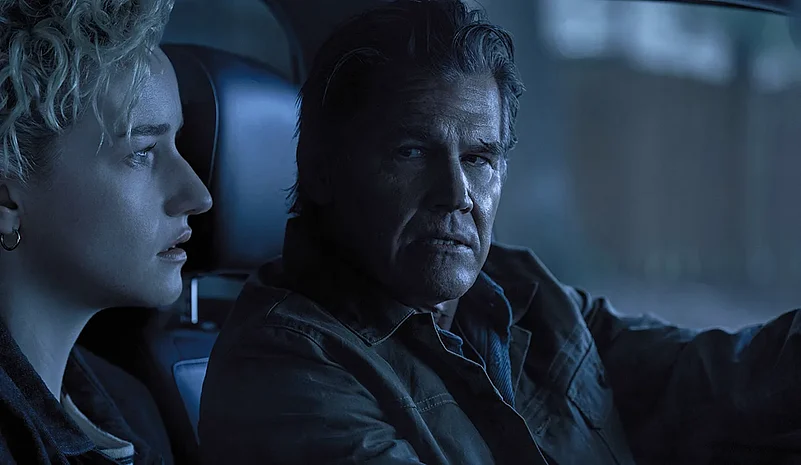
However, the community mostly slumps into an embarrassed, awkward, tetchy silence over the incident. The police don’t seem particularly revved up to crack the bizarre case either. Grief and trauma hang in the air, but there’s no outlet as such. Justine is mostly mopey by herself, drinking away the nights. But despite the hindrances of Marcus and Paul (Alden Ehrenreich), a local cop, she follows Alex, intent to discover if he’s hiding something. Then, the film flows out via a kaleidoscope of perspectives, swerving to Paul, Marcus, Archer (Josh Brolin) who’s father to one of the missing—a skulking rat of a wastrel and addict—James (Austin Abrams, an absolute hoot) and Alex himself. The narrative rewinds, scenes tilting from various angles. The structure doesn’t pay off wholly but Cregger doesn’t drop the ball, in spite of the many restarts and recalibrations. DP Larkin Seiple draws you close to individual viewpoints often sideways—destabilising them to widen and revert back to the intimate claustrophobia.
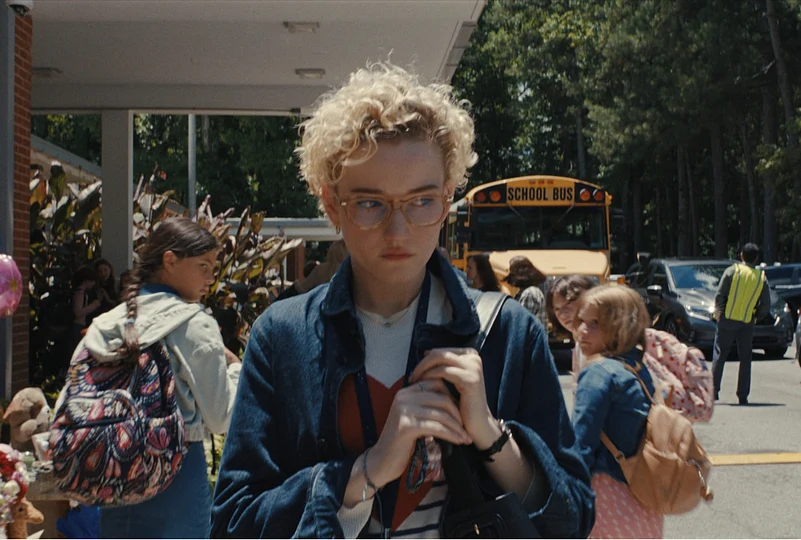
Building on the promise of his rollercoaster debut Barbarian (2022), Cregger twists his latest into a cunning exploration of small-town hush. There are secrets and denials, doors half-opening to invite chaos and violence. A recurring image is the shut door of a house, curious people waiting outside and watching what might be going behind it. Onlookers switch to tentative interlopers. Shock erupts, hewing into dark humor. But Cregger knows how to stretch out the wait with seductive efficiency. Similarly terrific is his puncturing of dread—offset with a pure indulgence of the ludicrous.
What’s breathtaking, therefore, is how Weapons sashays from horror to humor seamlessly. It’s a bold tight rope, and Cregger aces it without breaking a sweat. Watch out for Garner landing laughs even while her character is chased by a freak. Cregger can skillfully provoke winces and chuckles within quick succession. As grim and searing Garner and Brolin can be, Abrams lightens the mood with endlessly meme-able expressions of astonishment and spaced-out delirium. His line readings are frantic and exhilaratingly inventive.
But the real scene-chewer here is Amy Madigan. To say more on how she barges in would be divulging the plot too much; but she unleashes a bolt of manic energy right when Weapons seems to be losing the plot. Shifting from loony to chilling, Madigan almost storms off with the film. Sporting a bright orange wig and clownish makeup, she is a vision of unnerving battiness. But even when Weapons slows down, her cold precision, the way she can stare into the soul of a child strike absolute terror.
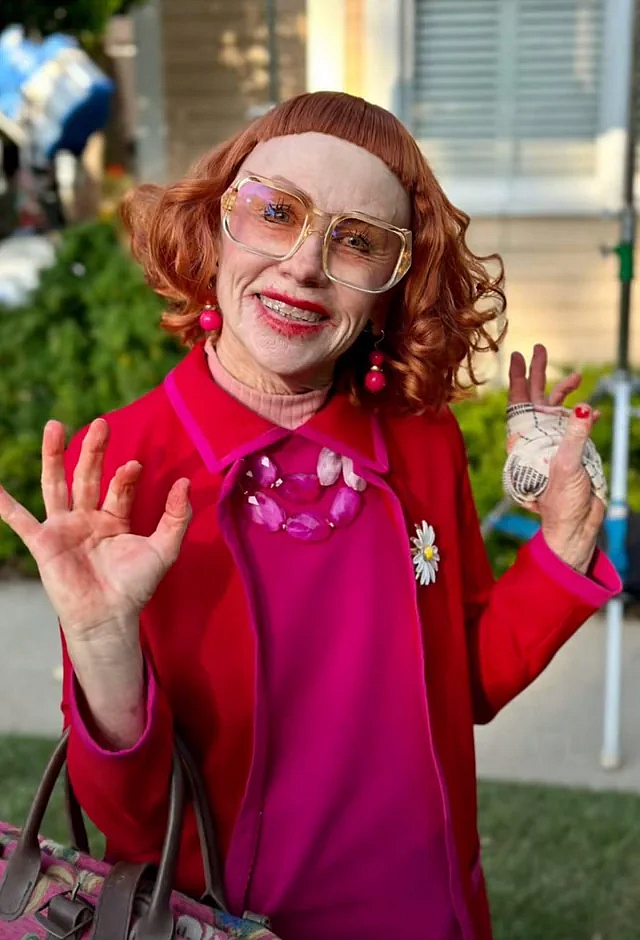
Though the big reveal is a tad stale, there’s no denying the sheer sardonic pleasure with which the narrative carpet is laid out. Cregger is a master in orchestrating high-strung anticipation—that billowing feeling when you sense things might go south very soon. He plays the audience his own pack of cards, scenting pauses and intervals with acute tension. As Weapons flashes its climactic trick, it does hit as too pat. The final half-hour goes too linear and telegraphed by the unwrapped secret to retain a preceding tautness. Yet Cregger choreographs a bonkers ending with such uncontrolled, self-aware glee—it’s impossible not to cheer for his wild spirit.












